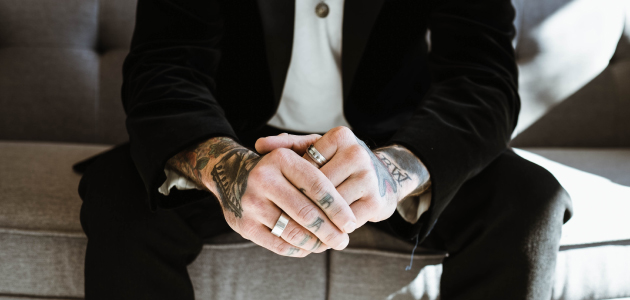 Recently, the legal rights of tattoo artists became the center of a copyright debate. In the past decade, tattoo artists have filed multiple lawsuits against prominent entertainment companies, such as Warner Brothers, for the use of Mike Tyson’s tattoo in the movie Hangover 2, and against Electronic Arts for the use of athletes’ tattoos in the football video game series NFL Madden. Both of the cases settled outside of court, which leaves this area of the law very much unsettled.
Recently, the legal rights of tattoo artists became the center of a copyright debate. In the past decade, tattoo artists have filed multiple lawsuits against prominent entertainment companies, such as Warner Brothers, for the use of Mike Tyson’s tattoo in the movie Hangover 2, and against Electronic Arts for the use of athletes’ tattoos in the football video game series NFL Madden. Both of the cases settled outside of court, which leaves this area of the law very much unsettled.
A major issue discussed in these cases is the fact that a tattoo is permanently part of a person’s body. Specifically, the tattoos in question are bared by famous individuals who are constantly within the public eye. The defendants argue that the consequences of allowing a tattoo artist to have authority over the display and distribution of the tattoo would cause an unmanageable restriction on the tattoo bearer and third parties such as photographers. However, the tattoo industry openly admits to granting an implied license to display the tattoo insomuch that a person within the public eye can live their life as desired. Tattoo artists do not ask people to cover their skin any time they go into public. However, tattoo artists want to protect their right to keep third parties from monetizing their artwork, which is what they argue entertainment companies are doing in these video games and movies.
Since the cases outlined above cases have settled early on, courts have not yet had the opportunity to address key issues in these cases, including copyrightability of tattoos or the ownership of such work. Most cases were dismissed within about a year and never went further than a motion to dismiss. However, the most recent case, filed in February of 2016 against the creators of NBA2K, a series of basketball video games, may change this. Neither party seems to be backing down from their respective positions, and NBA2K continues to release new video games that prominently display the tattoos of NBA stars. This will be an interesting case to watch, and may very well present the first opportunity for a court to address key issues in these cases.
This area of copyright law seems to be at its turning point. When the first case was filed, many felt that there would be a wave of lawsuits. This has not happened. However, it’s only a matter of time before the “flood gates” open, and the law will need to catch up.
About the author:
Delia Ramirez, Of Counsel at Hakimi Law, is a business transaction attorney with a passion for entertainment and technology that is rooted from working with all around creative and innovative people. Delia’s practice focuses on business and corporate formation and transactions; contract drafting and review; and intellectual property.


